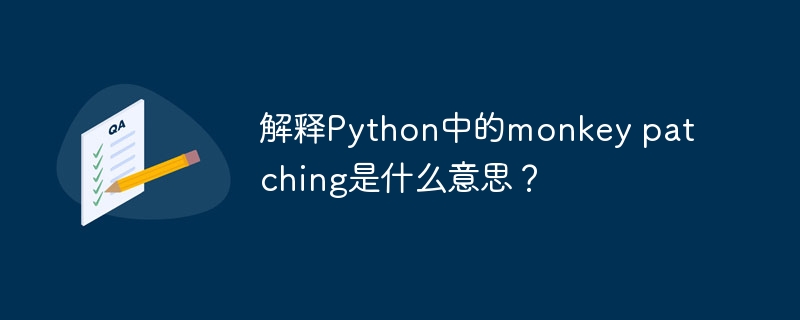

Monkey patching is the technique of dynamic modification of a piece of code at the run time. Actually by doing monkey patch we change the behavior of code but without affecting the original source code.
The term Monkey patch is derived from guerrilla patch, which almost means gorilla and can define the monkey species. Guerrilla patching refers to making changes secretly. But monkey patch sounds easier to pronounce, so it is now called "Monkey patch". In the word "Monkey-patch", monkey defines the word dynamic.
Monkey patching in python refers to modifying or updating a piece of code or class or any module at the runtime. In simple words, we can change the behavior or working of a class/ module at the runtime without changing the whole python code . But sometimes monkey patching is considered bad practice because the definition of object does not accurately describe how the object is behaving in the code.
class first:
def print(self)
print(“hello world”)
If we run the above code it will generate the following output −
Hello world
Import monkey def monkey_function(self): print(“Hello world”) # updating the print() with monkey_function() monkey.A.print = monkey_function # revoking method print() as method monkey_function() obj = monkey.A() obj print()
If we run the above code it will generate the following output −
Hello world
The above is the detailed content of Explain what monkey patching in Python means?. For more information, please follow other related articles on the PHP Chinese website!
 The difference between vue2 and vue3 two-way binding
The difference between vue2 and vue3 two-way binding
 There are several ways to position CSS position
There are several ways to position CSS position
 What is the difference between a demo machine and a real machine?
What is the difference between a demo machine and a real machine?
 What are the data backup software?
What are the data backup software?
 What problems can js event bubbling solve?
What problems can js event bubbling solve?
 convert command usage
convert command usage
 How to set offline status on Douyin
How to set offline status on Douyin
 How to solve disk parameter errors
How to solve disk parameter errors




